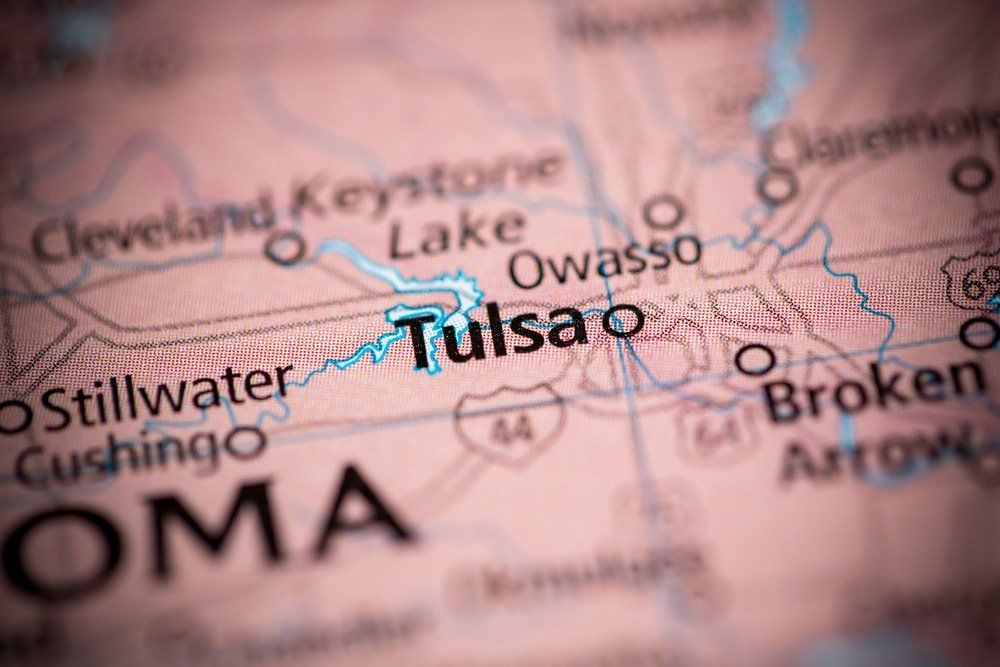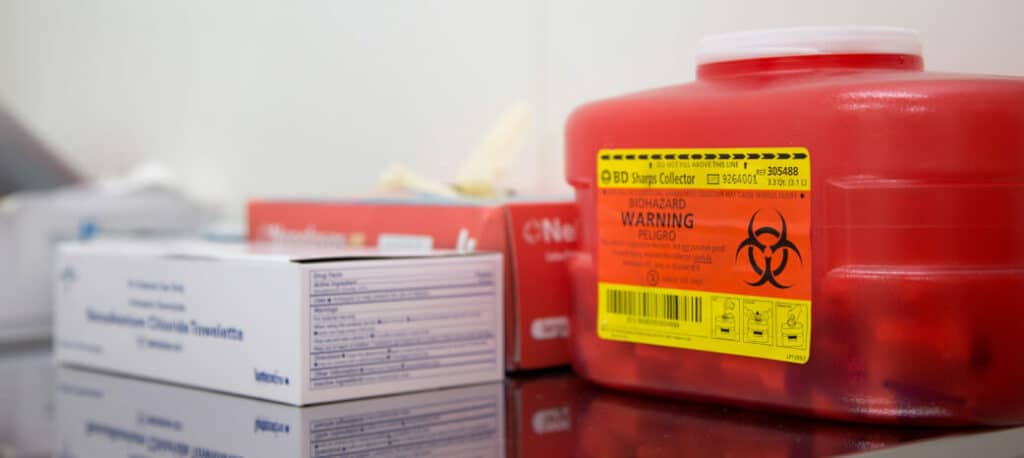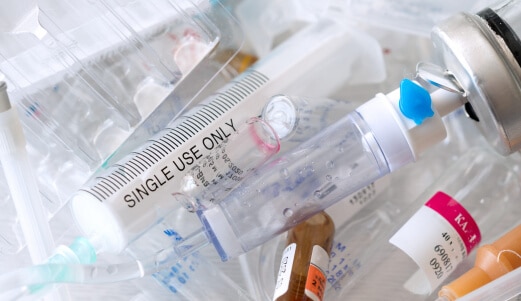
Oklahoma Medical Waste Disposal
Annual Savings offered by MedPro Disposal in Oklahoma
See below for some of our Oklahoma quotes, saving Oklahoma Practices thousands of dollars.
The MedPro Disposal Difference
Safe medical waste disposal has never been so simple and affordable. How do we keep our prices so low? By charging only for the services you need and keeping our operating costs low to pass along the savings.
Every practice is different, and we tailor a custom solution that fits your needs and budget, from our pick-up schedule to the right kinds of biohazard and sharps containers.
Find out how much you can save instantly. Try our online savings calculator.
Oklahoma Locations Serviced
We offer biohazard and medical waste disposal services throughout Oklahoma, including:
It’s Easy to Get Started With MedPro Disposal

Contact Us
Contact MedPro Disposal for a fast, free medical waste removal quote. We’ll get to know you, discuss your needs, and settle on a number. You may be surprised at how much you can save on medical waste disposal with MedPro Disposal.

Waste Pickup Date
Work with MedPro Disposal to determine your first pickup date. We’ll confirm your office hours and provide convenient options for medical waste and sharps pickup.

Compliance Survey
Complete a compliance survey. After we get to know your requirements, we’ll send you a survey to identify any areas that need to be brought up to OSHA standards.
All three steps occur at no additional cost to your practice. You’re on your way to safe, affordable, compliant medical waste removal!
Contact MedPro Disposal Today for a Fast, Free Quote!
Oklahoma Medical Waste Savings
| Practice Type | Zip Code | Projected Annual Savings |
|---|---|---|
| Family Practice | 74825 | $8,340 |
| Family Practice | 73521 | $6,401 |
| Urgent Care | 73401 | $900 |
| Dermatology | 73401 | $4,934 |
| Urgent Care | 73008 | $2,460 |
| Health Care Clinic | 74012 | $5,880 |
Find Out How Much You Can Save Instantly
Try our on-line savings calculator.

Oklahoma Medical and Biohazardous Waste Disposal

Oklahoma is a land of diverse conditions, sometimes beautiful and sometimes harsh, its history as a territory and as the 46th state painting a broad palette of cultural and social heritage. Four billion years of natural history have forged 11 distinct ecological systems within its borders, ranging from low wetlands to high plains, and its location in a humid subtropical zone rocks the state with as many as 62 tornadoes each year.
On one day in 1911, a record high and a record low were both set on the same day in Oklahoma City. The state of the “Okies”, who have flipped this once demeaning term into a badge of state pride, has housed an equally diverse host of people. Here is one of them: James Banning. Born on an Oklahoma homestead in 1899, this African-American hero learned to be a pilot, built his own airplane, and with a friend and mechanic, Thomas Allen, was the first black man to fly across the U.S. continent, from Los Angeles to New York City, circling the Statue of Liberty on completion. The adventure took 21 days, and they funded it by asking for donations from folks in the towns they landed in along the way, slept in barns and haystacks, and quietly and determinedly made history.
Over four hundred million Native Americans live in Oklahoma today, and the state has been home to 67 tribes. A massive event, the Red Earth Festival, hosts over 100 tribes from all over the United States and Canada each year in Oklahoma City. This sacred and spirited celebration calls for artists each year from all tribes and nations and presents an astounding dance competition by performers in a tribal dress of all genders and ages, and at its grandest, it can showcase the different dance styles of the culture, Jingle Dress and Traditional and Grass.
With a diverse population to serve, the State of Oklahoma’s Oklahoma Health Improvement Plan has since 2010 instituted measures and programs to fight obesity, smoking, infant mortality rates, and to create healthier environments at schools to promote nutritious eating and physical activities. They are taking straight forward looks at social determinants, behavioral health, economic factors, and health transformations to change the culture and its people. They ask every Oklahoma citizen to take part through public-private and tribal partnerships, to adopt health policies within businesses, schools, congregations and communities, and to adopt healthier lifestyle choices and encourage friends and family to do the same.
Their goal is to help Oklahomans live healthier, happier, and longer lives. Oklahoma’s medical waste disposal regulations are managed by the Oklahoma Department of Environmental Quality, and hospitals are regulated by the Oklahoma State Department of Health. OHSA rules also apply medical and biohazardous medical waste and disposal in Oklahoma. These include the types of medical wastes and storage requirements.
Under the regulations, “regulated medical waste” means a waste or reusable material that contains an etiologic agent and is generated in the diagnosis, treatment or immunization of human beings or animals; research pertaining to the diagnosis, treatment or immunization of human beings or animals; or the production or testing of biological products.
The types of waste are specifically defined as:
- Cultures and stocks
- Human blood, blood products, and human body fluids, except urine or feces
- Pathological wastes consisting of human tissues, organs, and body parts removed during surgery, autopsy, biopsy and other medical procedures.
- Untreated sharps
- Used blood collection bags, tubes, and vials
- Contaminated carcasses, body parts, and bedding of animals intentionally exposed to pathogens in research, in the production of biologicals or the “in vivo” testing of pharmaceuticals.
- Items contaminated with blood or other human body fluids which drip freely or would release such materials in a liquid or semi-liquid state if compressed or are caked with dried blood or body fluids and are capable of releasing these materials.
- Isolation wastes unless determined to be non-infectious by the infection control committee at the health care facility.
- HIV-containing cell or tissue cultures, organ cultures, and HIV- or HBV-containing culture medium or other solutions; and blood, organs, or other tissues from experimental animals infected with HIV or HBV.
- All disposable materials that have come in contact with cytotoxic or antineoplastic agents during the preparation, handling, and administration of such agents. Such wastes include, but are not limited to, masks, gloves, gowns, empty IV tubing and bags, vials, and other contaminated materials.
- Any other material or equipment which, in the determination of the responsible party, presents a significant danger of infection because it is contaminated with, or may reasonably be expected to be contaminated with, etiologic agents.
And while healthcare facilities are not subject to the storage requirements of Title 252 Chapter 515, OSHA storage requirements do apply to healthcare facilities. Regulated medical waste processing facilities must meet the following storage standards for RMW:
- All waste must be processed or placed into refrigerated storage, at 45 degrees F, within 24 hours of delivery.
- If processing has not occurred within 96 hours, waste shall be transported to an alternate permitted site.
This is a lot of important information, detailed and specific. And regulations from these various sources may change as advances are made in health care, environmental safety, and medical waste disposal practices. MedPro Disposal can assist you in tracking and staying up to code, with continuous review of OHSA regulations to help ensure compliance, active assistance in getting you trained, certified and safe, and the service, friendliness, and availability of a small company combined with the awareness, protection, and professionalism of a nationally-minded company. Attention to detail and knowledge of the big picture equal peace of mind over incidents, financial savings, reduced risk, fewer surprises, and honest and comprehensive public service. Every Oklahoman patient expects these same qualities from their health care professionals. MedPro Disposal respects your medical professionalism, your time and your effort, and we will help you to help them with full-service management, removal, transportation and, disposal of regulated medical waste.
Oklahoma State Resources
Oklahoma Little-Known Facts
Boise City , OK, was the only city in the United States to be bombed during World War II. On Monday, July 5, 1943, at 12:30am., a B-17 Bomber based at Dalhart Army Air Base, Texas, dropped six practice bombs on the sleeping town, mistaking the city lights as target lights.
Oklahoma Online Safety Compliance Portal
We strive to provide you services in Oklahoma that will save you money! Part of this process is to make sure you are not paying for more than you generate.
We understand the importance of saving your money without sacrificing service. MedPro will be your partner in your medical waste management program by being a low-cost provider of medical waste disposal and OSHA training services.
Have questions about compliant biohazard waste and sharps waste disposal best practices?
Why Choose MedPro Disposal for Medical Waste & Sharps Container Disposal in Oklahoma?
Methods of Oklahoma Medical Waste Disposal
On-site Medical Waste Collection
Package medical waste on-site, then leave it for collection by a medical waste disposal company.
Mailback Waste Disposal
Properly package and label the sharps, then send the biohazardous waste safely through the mail for disposal.








